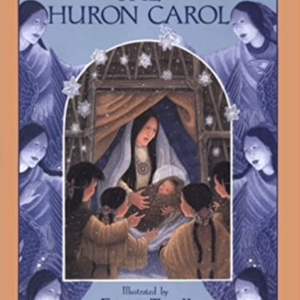In anticipation of Christmas, here’s a selection of seasonal notes and quotes from my journal.
Babies aren’t made in factories; every child is handmade. An underlying message of Christmas is that every birth is as miraculous as the Virgin Birth, and every miracle serves only to highlight the miraculousness already present in the ordinary. At Christmas God makes Himself small for our sake, as much as to say, “You think I’m unapproachable—but here I am, right here! Draw near, touch Me, hold Me, clasp Me to your heart. Don’t be afraid.”
As Thomas Hoffman observes, “Christmas teaches us that God is at home with us. Not visiting, not passing through—He is at home. Shoes come off, beds are unmade, pretenses drop, our hair is a mess, and dirty dishes fill the sink—nevertheless God is at home. Smelly socks and soiled diapers are as much a part of our spiritual lives as cathedrals and sacraments.”
My favorite lines of any Christmas carol are from “O Little Town of Bethlehem” by Phillip Brooks:
How silently, how silently
The wondrous gift is given!
So God imparts to human hearts
The blessings of His heaven.
These words echo an astonishing verse in the Book of Wisdom, written half a century before Christ’s birth: “While all things were in quiet silence and the night was in the midst of her course, Thine almighty Word leapt down from heaven from Thy royal throne” (18:14-15).
To my knowledge, in all of Shakespeare there is only one direct reference to Christmas. But it’s a beauty. It occurs in the very first scene of Hamlet, just after the appearce of the ghost, when Marcellus tries to calm things down with these words:
Some say that ever ’gainst that season comes
Wherein our Savior’s birth is celebrated,
The bird of dawning singeth all night long;
And then, they say, no spirit dare stir abroad,
The nights are wholesome, then no planets strike,
No fairy takes, nor witch hath power to charm,
So hallowed and so gracious is the time.
In his blank verse drama Within and Without, George MacDonald wrote of Christmas Day:
The light comes feebly, slowly, to the world
On this one day that blesses all the year,
Just as it comes on any other day:
A feeble child he came, yet not the less
Brought godlike childhood to the aged earth,
Where nothing now is common any more.
Charles Dickens felt the same when he wrote in “A Christmas Tree”: “Oh, at Christmas all common things become uncommon and enchanted to me! All lamps are wonderful; all rings are talismans. Common flower-pots are full of treasure, with a little earth scattered on top … Any iron ring let into stone is the entrance to a cave which only waits for the magician … On every object of my Christmas Tree, I see this fairy light!”
In God’s Nativity Scene, Enrique Monasterio tells a parable about a star that had existed all alone, off in some remote corner of the cosmos, planetless, apparently purposeless, having no idea that it “existed for the Lord alone” and would one day be called upon to illumine His newborn face. Much has been speculated about the nature of the Christmas star, but what if it was just another star, not even especially bright, but one that just suddenly appeared out of nowhere, so that only those familiar with the heavens would have noticed? Wouldn’t this be more in keeping with the Child Himself? No big fuss, just a birth, exceptional only to those with eyes to see.
Paul Simon’s song “The Obvious Child” strikes a similar note, in that the Holy Child did not come into the world with any great pomp and circumstance. Like God, He is right before our eyes, plain as day, and just because He is so obvious He is easily discounted.
Mary Oliver’s “Christmas Poem” is based on the legend that at midnight on Christmas Eve all the animals kneel. On the stroke of midnight a little girl goes out to the barn to see if this is so—and it isn’t! The animals are lying in their stalls, as usual, oblivious. At first the little girl is crushed, even outraged, crying, “Heretics!” But gradually, in the presence of these great, looming, living creatures, she softens, realizing what prodigies they are, “immaculate still as when You thundered forth on the morning of creation.”
Angelius Silesius wrote, “If you could turn your heart into a cow stall, Christ would be born again on earth.”
Next Post: Commotion! – A Brand New Christmas Story






